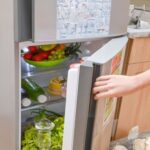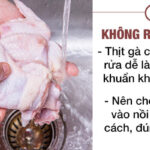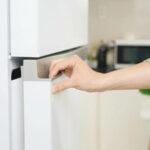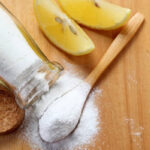Plastic ware is indeed a staple in many home kitchens due to its convenience, durability, and affordability. However, it’s crucial to use plastic ware properly when preparing food to maintain its quality and ensure the safety of yourself and your family.
Using Plastic Ware for Food Preparation
It’s challenging to avoid plastic ware altogether, but you can control its potential negative impact by using it wisely. Here are some guidelines to consider:
Choose High-Quality Plastic Ware
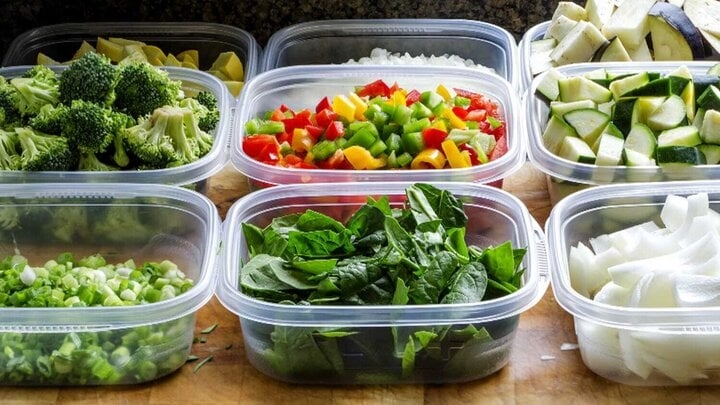
For safety, opt for plastic ware from reputable brands. (Image: The Today Show)
Invest in good-quality plastic containers made from highly-rated, safe plastics that don’t leach toxic chemicals into food, such as polypropylene (PP), polyethylene (PE), and tritan. Steer clear of plastic ware containing BPA (bisphenol A) as it can be harmful to your health, especially when exposed to high temperatures.
Before purchasing, carefully inspect the labels and information on the packaging or product. Safe plastic ware often carries a “BPA-free” label or standard marks from food safety organizations. If you’re unsure about the quality, opt for products from well-known, trusted brands.
Use Plastic Ware Correctly
One crucial rule when using plastic ware for food preparation is to avoid contact with hot food. High temperatures can cause plastic to release harmful chemicals into your food. Use plastic ware for room-temperature or cooler foods. If you need to use plastic ware with hot food, choose heat-resistant varieties.
Plastic ware is generally not suitable for ovens or microwaves unless specifically stated as heat-resistant or microwave-safe. When cooking or reheating food, opt for safer materials like glass or ceramic.
Proper cleaning and maintenance of plastic ware are also essential for food safety. Wash immediately after use to prevent bacterial growth and oil buildup. Avoid harsh chemicals or bleach as they can damage the plastic surface. Instead, use warm water and mild soap, then rinse thoroughly and dry completely.
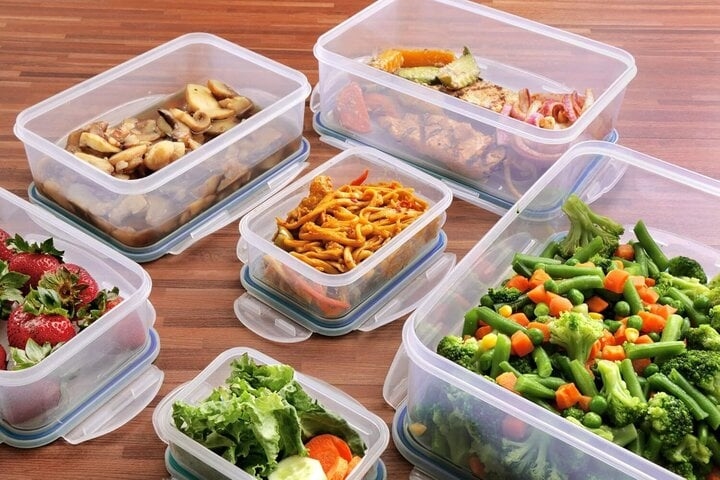
Don’t use plastic ware in ovens or microwaves. (Image: Ubuy)
Store Properly
To prolong the lifespan of your plastic ware, store it in a cool, dry place, away from direct sunlight or heat sources, as these can cause the plastic to warp or change its properties.
If your plastic ware develops cracks or shows signs of damage, discontinue use. Cracks can harbor bacteria and compromise the safety of the container. Replace damaged items immediately to maintain food preparation safety.
Additional Considerations When Using Plastic Ware
Each type of plastic ware may have specific care instructions. Always read the manufacturer’s guidelines to ensure safe and effective use.
The quality of plastic ware significantly impacts food safety. Opt for products with quality certifications and assurances of food-safe materials. Lower-quality plastic ware may leach toxic chemicals or deteriorate more easily.
Don’t use plastic ware for purposes other than its intended design. For example, don’t use plastic knives to cut hard foods or plastic containers for grilling. When used correctly, plastic ware can be a safe and efficient tool for food preparation.
How to Prevent Food From Spoiling When Your Fridge Suddenly Loses Power.
If your refrigerator suddenly loses power, you may worry about the food inside spoiling. But fear not! We’re here to help you navigate this tricky situation and ensure your food stays fresh and safe to eat. With our expert guidance, you’ll be able to keep your cool, even when your refrigerator doesn’t. So, let’s explore the best ways to handle a refrigerator power outage and keep your food in tip-top condition.


























